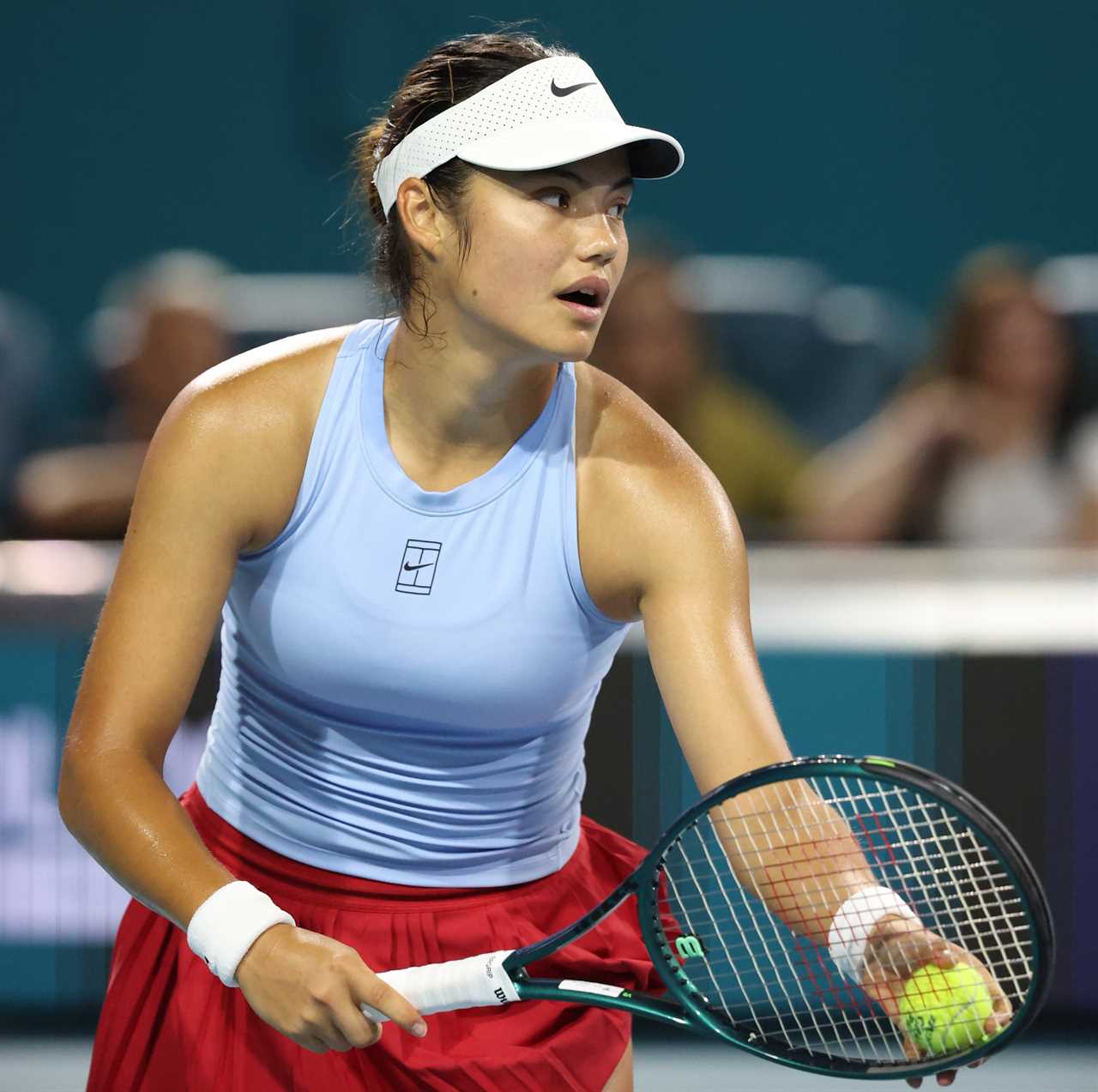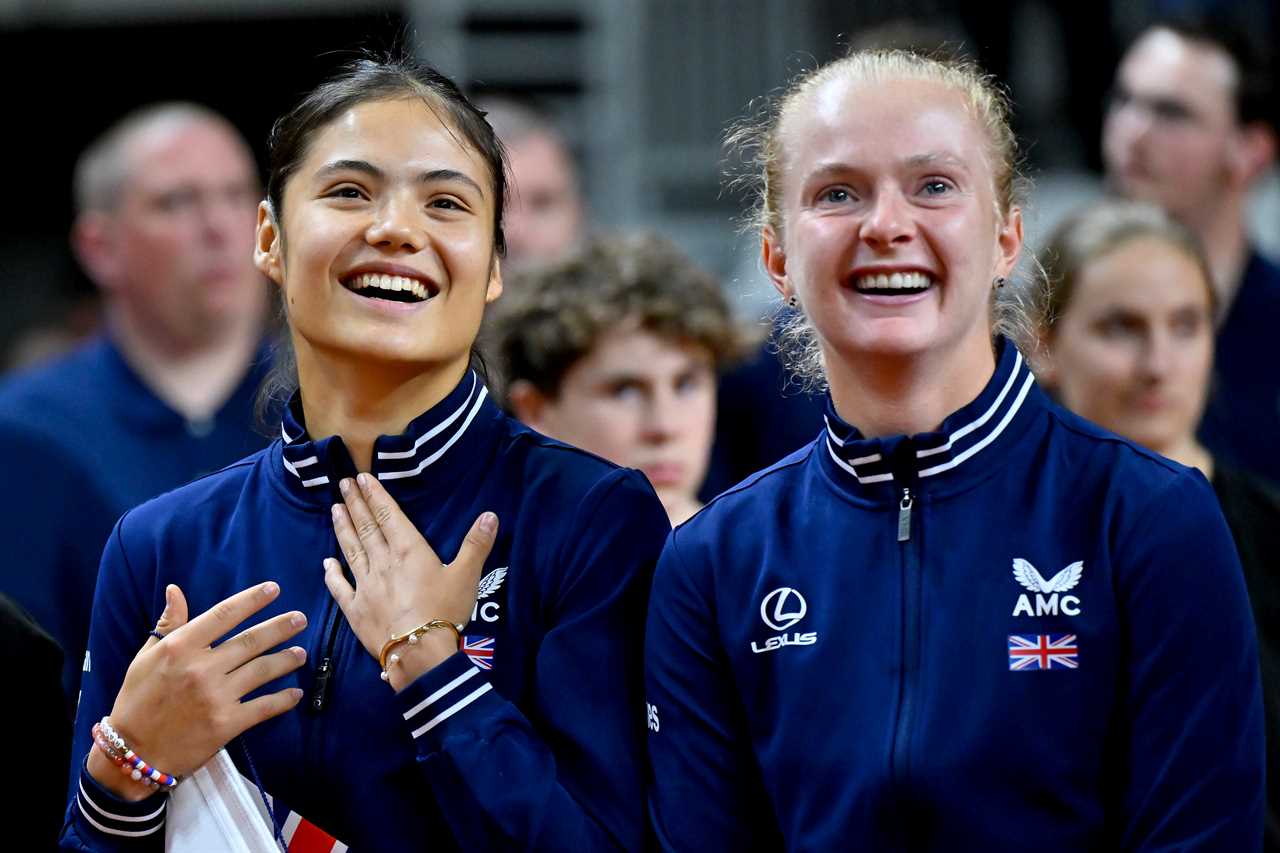
Champion Steps Back for Health and Training
Emma Raducanu has decided not to represent Great Britain in the upcoming Billie Jean King Cup matches against Holland and Germany. The decision comes as the former US Open winner prioritises her physical well-being and training schedule.
No Specific Injury Reported
Raducanu's team has stated that her withdrawal is due to fitness concerns, though no particular injury has been disclosed. This move is aimed at allowing her to recover and focus on her preparations for the French Open scheduled for May.
A Strategic Pause in the WTA Tour
Taking a break from the WTA Tour this month, Raducanu will concentrate on intensive training within the UK. Her management believes that resting now will benefit her long-term performance and readiness for upcoming major tournaments.
Impact on Team and Alternatives Sought
The unexpected withdrawal has left Britain's team captain, Anne Keothavong, searching for replacement players to step in for the crucial matches. The team aims to secure a spot in the BJK Cup Finals in Shenzhen, making Raducanu's absence a significant adjustment.

Recent Performance Highlights
Earlier this year, Raducanu showcased her talent at the Miami Open by advancing to the quarter-finals and winning four consecutive matches. Her impressive run was supported by Tennis Channel commentator Mark Petchey, who has been a notable figure in her career development.
Future Coaching Plans Unclear
While Raducanu's current coaching arrangements remain unchanged, it is uncertain whether she and Mark Petchey will continue their partnership moving forward. The focus now is on ensuring that her training regimen remains effective and tailored to her competitive needs.
Looking Ahead to the French Open
Despite stepping back from the Billie Jean King Cup, Raducanu's withdrawal is not expected to hinder her preparations for the French Open. Her team is confident that the rest and training period will enhance her performance on the clay courts in May.
Team's Commitment to Success
Great Britain's team remains determined to perform well in the upcoming matches against Holland and Germany. With Raducanu concentrating on her individual goals, the team is focused on building a strong lineup to achieve their objectives in the competition.
Support from the Tennis Community
Raducanu's decision has been met with understanding and support from fans and fellow players alike. Her commitment to maintaining peak fitness and focusing on her career trajectory is seen as a positive step towards sustained success in the highly competitive tennis landscape.
What’s Next for Raducanu
As Raducanu prepares for the French Open, all eyes will be on her to see how this period of rest and focused training translates into her performance on the court. The tennis community eagerly anticipates her next moves and future achievements.
Frequently Asked Questions
How does a top-level tennis player's daily training look?
A top tennis player's daily training program is rigorous and well-structured. It is often a long day on the courts, focusing on tactics, drills, and match-play situations. In addition, players participate in fitness sessions designed to increase strength, agility and endurance. This is complemented by recovery activities such as stretching or massage. Proper nutrition and psychological coaching are also integral components, ensuring athletes maintain peak performance both physically and mentally.
How do mental and psychological aspects factor into tennis training?
Tennis players need to be trained in mental and emotional training just as much as they do physical training. The player must be able to control stress, maintain concentration, and manage the emotional highs, and lows, of competition. Techniques such as visualization, goal-setting, and mental rehearsals are common practices. A sports psychologist can assist players in building resilience, developing coping strategies to deal with pressure, and elevating their mental game so that it matches their physical prowess.
What role plays video analysis in training top tennis athletes?
Video analysis can be a valuable tool to train and develop top tennis players. It allows for detailed review of technique, tactics, opponent patterns, and match play. Coaches and athletes use video analysis to break down strokes, pinpoint improvement areas, and strategize with future opponents. This helps in recognizing tendencies and habits that might go unnoticed when the competition heats up, which allows for more focused and efficient training sessions.
What kind of team support does a tennis star need?
Tennis players need a solid support team in order to perform at their best. The team includes, for example, a head tennis coach to oversee technical and training development, fitness trainers for physical preparation, a physiotherapist/medical professional to prevent and manage injuries, sports psychologists for mental coaching, and nutritionists to give advice on diet. A hitting partner, a manager or agent, and sometimes a stringer can also be part of the team, ensuring the player can solely focus on their game.
How important is nutrition to becoming an elite tennis competitor?
Tennis players do not fall short of the requirements for a healthy diet and nutrition. The right diet supports intense training by providing energy, improving recovery and reducing injury risks. Diets of elite athletes typically include a balance of carbohydrates, protein, and fats as well as essential vitamins and minerals. Another important aspect is hydration, since maintaining a good fluid balance during play is essential to avoid fatigue and maintain focus.
Statistics
- Studies show that superior agility and speed among tennis players can reduce their reaction time by up to 30%, which is crucial during high-level matches.
- Approximately 70% of a professional tennis player's training time is devoted to developing technique and on-court strategies.
- Nutritionists report that a tennis player's diet should consist of about 55-60% carbohydrates, 15-20% protein, and 20-25% fats during intense training periods.
- On average, it's estimated that only 1 in 5000 high-level junior tennis players will develop into internationally ranked professionals.
- Persistent mental training and sports psychology can help reduce performance anxiety by up to 60%, according to sports psychologists working with elite athletes.
External Links
How To
How to Recover From Tennis Workouts?
A good recovery is crucial to avoiding injury and preparing the body for the following session. Begin with a cool-down phase that includes light cardio to gradually lower your heart rate. Stretching statically will help to improve flexibility and reduce tightness in the muscles. Utilize recovery techniques such as foam rolling or massage to alleviate muscle soreness and aid in lactic acid removal. It is important to stay hydrated. Replace fluids that are lost during exercise and replenish electrolytes, if needed. Consume carbohydrates and proteins to replenish glycogen and repair muscle after a workout. Final tip: Make sure to get enough rest and incorporate rest days into your schedule.
 CricketBoxingFormula 1GolfHorse RacingPremier LeagueTennisPrivacy PolicyTerms And Conditions
CricketBoxingFormula 1GolfHorse RacingPremier LeagueTennisPrivacy PolicyTerms And Conditions
